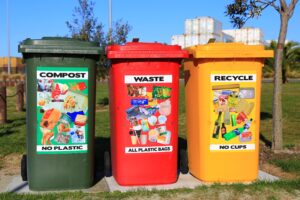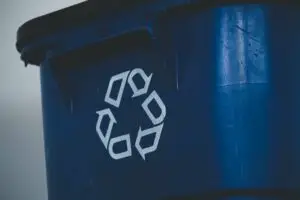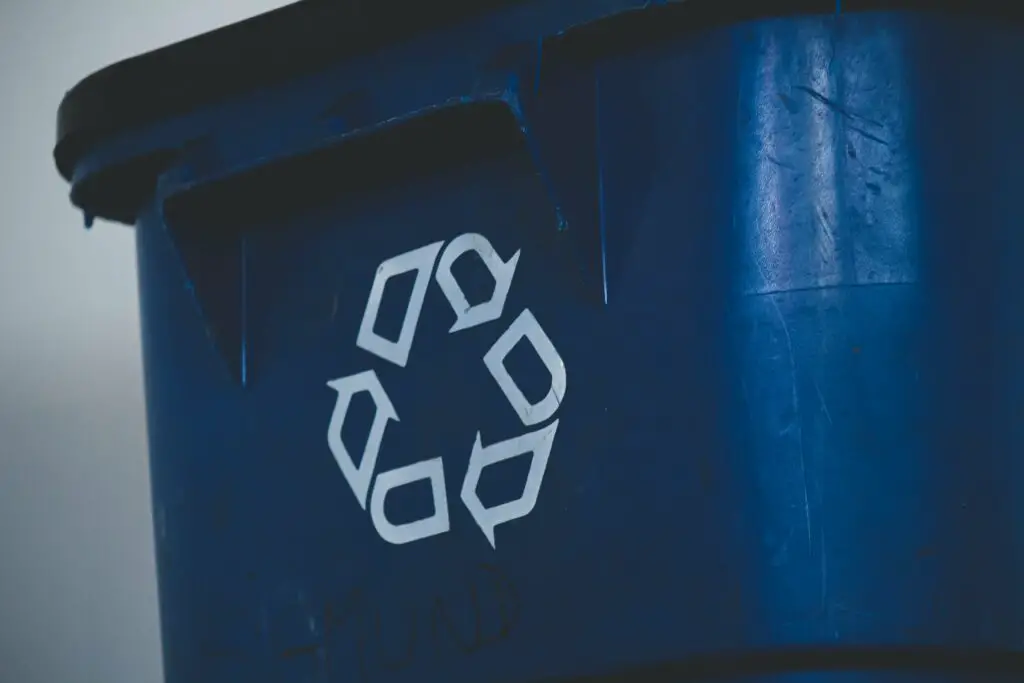Recycling is a vital practice involving transforming waste materials into new products or raw materials, thereby reducing the consumption of new resources and minimizing the amount of waste sent to landfills. It is an essential component of sustainable living and environmental stewardship. The importance of recycling lies in its ability to conserve resources, reduce waste, mitigate climate change, and foster a circular economy.
By recycling, we can actively contribute to preserving natural resources such as minerals, timber, water, and energy. It allows us to reuse materials like metals, plastics, paper, and glass, thereby decreasing our reliance on extracting and processing virgin resources. This conservation effort ensures that these valuable resources are available for future generations.
Additionally, recycling plays a crucial role in energy and emissions reduction. Producing goods from recycled materials typically requires less energy and generates fewer greenhouse gas emissions than raw materials manufacturing. Recycling becomes an effective tool in mitigating climate change and air pollution by reducing energy demand and carbon footprint associated with extraction and production processes.
Furthermore, recycling helps address the overwhelming challenge of waste management. By diverting materials from landfills and incinerators, recycling reduces the strain on waste disposal facilities and minimizes land, water, and air pollution. It allows us to minimize waste, conserve space, and protect our environment.
Not only does recycling have environmental benefits, but it also brings about economic advantages. Recycling industries, including collection, sorting, processing, and manufacturing, create job opportunities and stimulate local economies. It fosters the development of a circular economy, where materials are reused, remanufactured, and recycled, promoting innovation and sustainable business practices.
Moreover, recycling engages communities and encourages responsible behaviors. It raises awareness about waste management, resource conservation, and sustainable practices, promoting active participation in building a greener future. Education about the importance of recycling nurtures a sense of environmental stewardship and empowers individuals to make informed choices.

Contents
The Process of Recycling
Recycling involves steps that transform waste materials into new products or raw materials. This process helps to conserve resources, reduce waste, and promote sustainability. Here is a brief overview of the key stages in the recycling process:
1. Collection of recyclable materials:
The first step in recycling is the collection of recyclable materials. This can be done through curbside collection programs, drop-off centers, or specialized recycling bins. Individuals, households, businesses, and communities participate in the collection process by separating recyclables from other waste streams.
2. Sorting and separation:
After collection, the recyclable materials undergo sorting and separation. This step involves organizing and separating different materials based on their composition. Commonly recycled materials include paper, plastic, glass, metal, and electronic waste. Sorting is typically done either manually or through automated systems and machinery.
3. Processing and transformation:
Once sorted, the materials undergo processing to prepare for reuse or remanufacturing. Processing techniques vary depending on the type of material. For example, paper may be shredded, mixed with water, and turned into pulp, while plastic might be melted down into pellets. Metals can be melted and purified, and glass can be crushed into a cullet.
4. Creation of new products or raw materials:
The processed materials are then transformed into new products or used as raw materials for manufacturing. These materials are often combined with virgin resources to create products such as recycled paper, plastic bottles, aluminum cans, or glass containers. The quality and durability of recycled products continually improve as technology advances and recycling processes become more efficient.
It is important to note that not all materials can be recycled, and some require specialized recycling facilities. Contamination, improper sorting, and lack of awareness about recyclable items can pose challenges in recycling. However, ongoing efforts are being made to overcome these obstacles through education, technological advancements, and waste management infrastructure improvements.
Recycling plays a significant role in reducing waste, conserving resources, and promoting a circular economy by following the steps of collection, sorting, processing, and transformation. Through recycling, we can extend the lifespan of materials, reduce the need for extracting raw resources, and minimize the environmental impact associated with manufacturing from scratch.
Environmental Benefits of Recycling
Recycling offers many environmental benefits, contributing to a more sustainable future. Recycling plays a crucial role in mitigating environmental challenges by conserving natural resources, reducing energy consumption, minimizing waste, and protecting habitats and biodiversity. Here are the key environmental benefits of recycling:
1. Conservation of natural resources:
Recycling helps conserve valuable natural resources like minerals, timber, water, and energy. By reusing materials such as metals, paper, plastics, and glass, we reduce the demand for extracting and processing virgin resources. This conservation effort ensures that these resources are preserved for future generations.
2. Energy savings and reduced emissions:
Recycling typically requires less energy compared to manufacturing products from raw materials. Using recycled materials can significantly reduce the energy consumption associated with extraction, transportation, and production processes. Moreover, recycling often reduces greenhouse gas emissions and air pollution, helping mitigate climate change.
3. Waste reduction and landfill diversion:
One of the significant environmental benefits of recycling is waste reduction and landfill diversion. By diverting materials from landfills or incinerators, recycling minimizes the amount of waste in these facilities. This reduces the environmental burden of waste disposal and minimizes the potential pollution of land, water, and air.
4. Protection of habitats and biodiversity:
Recycling plays a crucial role in protecting habitats and biodiversity. By reducing the demand for extracting raw materials through recycling, we help preserve natural habitats otherwise disrupted by mining, logging, and other resource extraction activities. The conservation of habitats is vital for preserving biodiversity and the overall health of ecosystems.
By embracing recycling practices, we can significantly impact resource conservation, energy savings, waste reduction, and habitat protection. Promoting recycling awareness, improving waste management infrastructure, and encouraging responsible consumption to maximize the environmental benefits of recycling are essential. Doing so can create a more sustainable and environmentally conscious society.
Economic Benefits of Recycling
Recycling not only provides environmental advantages but also brings about significant economic benefits. From job creation and economic growth to developing a circular economy and cost savings for businesses and governments, recycling plays a pivotal role in driving sustainable economic progress. Here are the key economic benefits of recycling:
1. Job creation and economic growth:
Recycling industries, including collection, sorting, processing, and manufacturing, create job opportunities and stimulate economic growth. These industries require a diverse workforce, ranging from waste management professionals to recycling facility workers and researchers. By expanding recycling initiatives, communities can benefit from increased employment rates and the positive economic impact of these industries.
2. Development of a circular economy:
Recycling is a crucial element of a circular economy, where materials are reused, remanufactured, and recycled in a closed-loop system. Embracing a circular economy model promotes sustainable business practices, innovation, and resource efficiency. By diverting waste from landfills and incorporating recycled materials into production processes, businesses can reduce their reliance on virgin resources and create a more sustainable economic framework.
3. Cost savings for businesses and governments:
Recycling offers significant cost savings for businesses and governments. Utilizing recycled materials often proves more cost-effective than using raw materials, as recycling requires less energy and fewer resources. Recycling reduces waste management costs, including landfill fees and transportation expenses. By implementing recycling programs, businesses and governments can realize substantial cost savings.
The economic benefits of recycling extend beyond immediate gains, as recycling contributes to long-term sustainability and economic resilience. By embracing recycling practices, communities can build a more robust and diversified economy, reduce dependency on finite resources, and foster innovation in recycling technologies and processes.
To maximize economic benefits, investing in recycling infrastructure, promoting collaboration between public and private sectors, and supporting research and development in recycling-related industries is crucial. Doing so can create a more sustainable and prosperous future where economic growth goes hand in hand with environmental responsibility.
Social Benefits of Recycling
In addition to its environmental and economic advantages, recycling offers numerous social benefits that foster community engagement, education, and the promotion of sustainable practices. Individuals and communities can actively contribute to a more sustainable and responsible society by embracing recycling. Here are the key social benefits of recycling:
1. Community engagement and participation:
Recycling initiatives provide opportunities for community engagement and participation. By encouraging individuals to participate in recycling programs actively, communities can come together to work towards a common goal of waste reduction and resource conservation. Recycling drives foster a sense of community pride and unity as people join forces to create a greener and more sustainable environment.
2. Education and awareness about waste management:
Recycling serves as a platform for education and raising awareness about waste management. Through recycling programs, individuals learn about the importance of waste reduction, proper sorting, and the impact of their consumption habits. This education empowers individuals to make informed decisions about waste disposal, recycling, and responsible consumption.
3. Promotion of sustainable practices and responsible consumption:
Recycling promotes sustainable practices and encourages responsible consumption. By recycling materials, individuals become more conscious of their consumption patterns and are more likely to adopt practices such as reducing, reusing, and buying products made from recycled materials. This shift towards sustainable practices supports the overall well-being of communities and contributes to preserving natural resources for future generations.
Recycling initiatives foster a sustainability culture by actively engaging communities, providing education and awareness, and promoting responsible consumption. People become more conscious of their impact on the environment and are motivated to make positive changes in their daily lives. Recycling catalyzes social change, promoting environmentally responsible behaviors and cultivating a sense of environmental stewardship.
It is essential to continue investing in educational campaigns, community outreach programs, and public-private partnerships to enhance social engagement and participation in recycling efforts. By working together, we can create a society that values sustainability, cherishes the environment, and builds a better future for all.
Challenges and Solutions in Recycling
While recycling offers significant benefits, various challenges must be addressed to maximize its effectiveness. Identifying and overcoming these challenges can enhance recycling practices and create a more sustainable waste management system. Here are some common challenges in recycling and potential solutions:
1. Contamination and improper sorting:
Contamination and improper sorting of recyclables can hinder the recycling process. When non-recyclable items are mixed with recyclables, it reduces the value and usability of the materials. Solutions to this challenge include:
- Educating individuals about proper sorting techniques.
- Improving labeling and signage on recycling bins.
- Implementing stricter enforcement of recycling guidelines.
Public awareness campaigns can help educate communities on what can and cannot be recycled.
2. Lack of infrastructure and recycling facilities:
Inadequate infrastructure and a lack of recycling facilities pose a significant challenge to recycling efforts. Some areas may not have good recycling collection systems or processing facilities, making it difficult for individuals and businesses to participate in recycling programs. To address this, investments should be made in expanding recycling infrastructure, establishing recycling centers in underserved areas, and encouraging public-private partnerships to support the development of recycling facilities.
3. Promoting consumer behavior and recycling habits:
Encouraging positive consumer behavior and promoting recycling habits are vital for successful recycling programs. Many individuals may lack awareness or motivation to recycle consistently. Solutions include:
- Implementing educational campaigns to raise awareness about the benefits of recycling.
- Providing clear and easily accessible recycling information.
- Incentivizing recycling through rewards or recognition programs.
Additionally, making recycling convenient and accessible through improved collection systems can encourage participation.
4. Innovation and technological advancements:
Innovations and technological advancements play a crucial role in addressing recycling challenges. New technologies can improve sorting processes, enhance recycling efficiency, and facilitate the recycling of previously difficult-to-process materials. Supporting research and development in recycling technologies, encouraging collaboration between industry and academia, and fostering innovation can lead to breakthroughs in recycling methods and increase overall recycling rates.
By addressing these challenges through education, infrastructure development, behavioral incentives, and technological advancements, we can overcome obstacles in recycling and pave the way for a more efficient and sustainable recycling system. Collaboration among individuals, communities, businesses, and governments is key to finding innovative solutions and driving positive change in recycling practices.
Conclusion
Recycling is critical in building a sustainable future for our planet and future generations. Throughout this article, we have explored the importance of recycling in conserving natural resources, reducing waste, mitigating climate change, promoting economic growth, and fostering social engagement. Recycling offers numerous environmental, economic, and social benefits contributing to a more sustainable and responsible society.
Recycling can conserve precious natural resources, reduce energy consumption, and minimize waste sent to landfills. It protects habitats, preserves biodiversity, and helps mitigate the negative impacts of climate change. Additionally, recycling drives job creation, stimulates economic growth and promotes the development of a circular economy. Socially, recycling fosters community engagement educates individuals about waste management, and encourages sustainable practices and responsible consumption.
In light of the importance of recycling, individuals and communities must take action. We can start by adopting proper sorting practices, ensuring our recyclables are clean and contamination-free. Educating ourselves and others about the recycling process and guidelines is key to maximizing its effectiveness. Additionally, supporting the development of recycling infrastructure, engaging in recycling programs, and advocating for improved waste management policies are crucial steps toward a more sustainable future.
By embracing recycling, we can contribute to the conservation of resources, reducing greenhouse gas emissions, and creating a cleaner and healthier environment. Recycling is not just a responsibility but an opportunity for positive change. Let us all commit to recycling and inspire others to do the same. Together, we can build a future where recycling is ingrained in our daily lives and sustainable practices are the norm.
Through recycling, we hold the power to shape a better world. Let us seize this opportunity and work towards a more sustainable, prosperous, and environmentally conscious future.
More Posts :
Hollyhock vs Gladiolus: Unveiling the Power and Beauty of Two Garden Favorites in 2023





